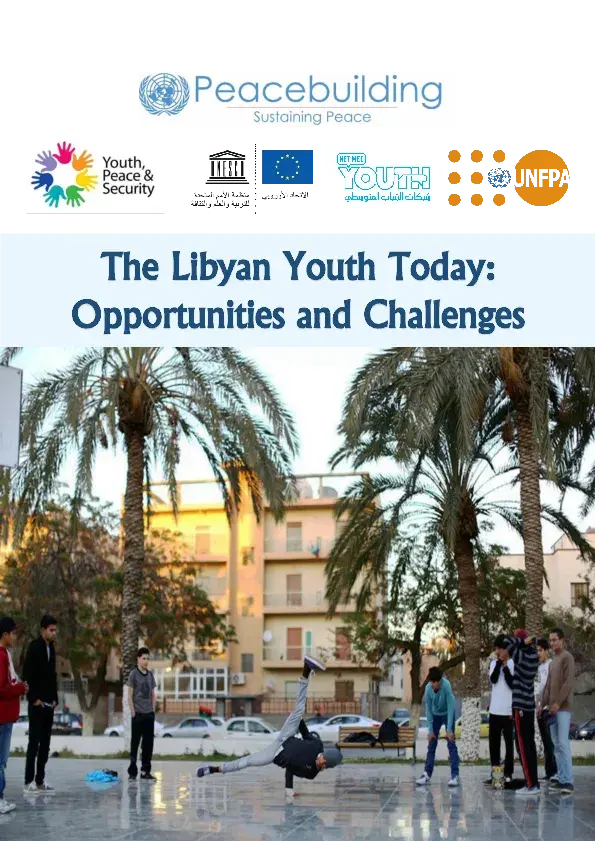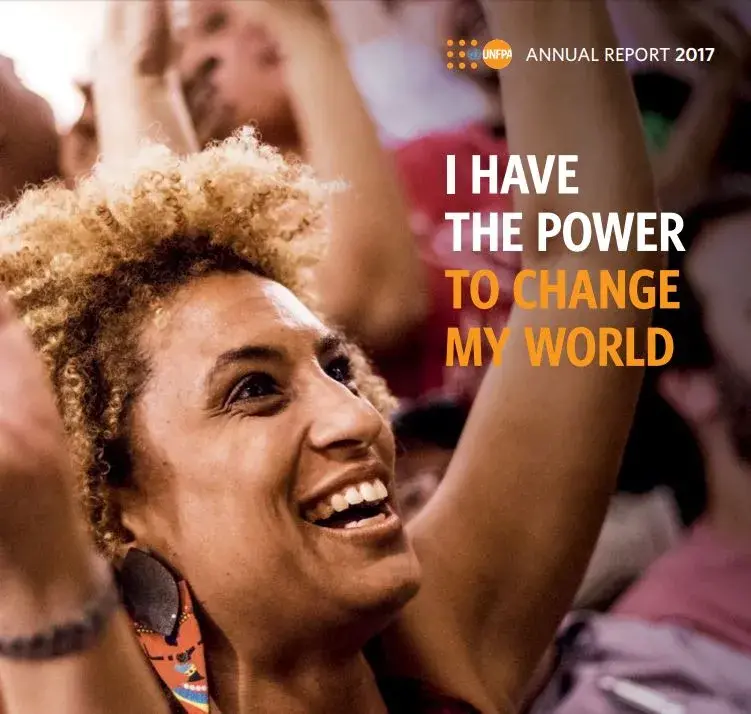Libya has witnessed unprecedented youth momentum in terms of size and proportion, which presents a unique opportunity to invest in peace and development efforts. This is all the more true that the profiles of the new generation in terms of education, health, vitality and other characteristics are outstanding, both for males and females, and far superior to those of the previous ones. The interest expressed by the new generation for community issues, their home country, and public and political affairs, and its readiness to participate in promoting dialogue and peace, and in strengthening state institutions, democracy and the transitional process in general appears to be strong, as reflected in the findings of recent field consultations carried out with the youth.
However, young people today face complex challenges that seem to have had an intense negative impact on their physical, social and psychological conditions, which confronted them with difficult choices and feelings swinging between despair and hope. Youngsters are the most educated and skilled, yet they are the most vulnerable to unemployment and economic exclusion. They have actively contributed to change towards building a society of freedom and social and economic justice but have ended up as the least represented at the decision-making level. Despite being the most dynamic and capable to give and to innovate, their participation in civic and political institutions is still at its lowest. Nor should we overlook the fact that modern Libyan girls are highly educated and knowledgeable compared too many neighbouring countries and even to the young males in Libya, still they face values that strongly hinder their emancipation and participation.




